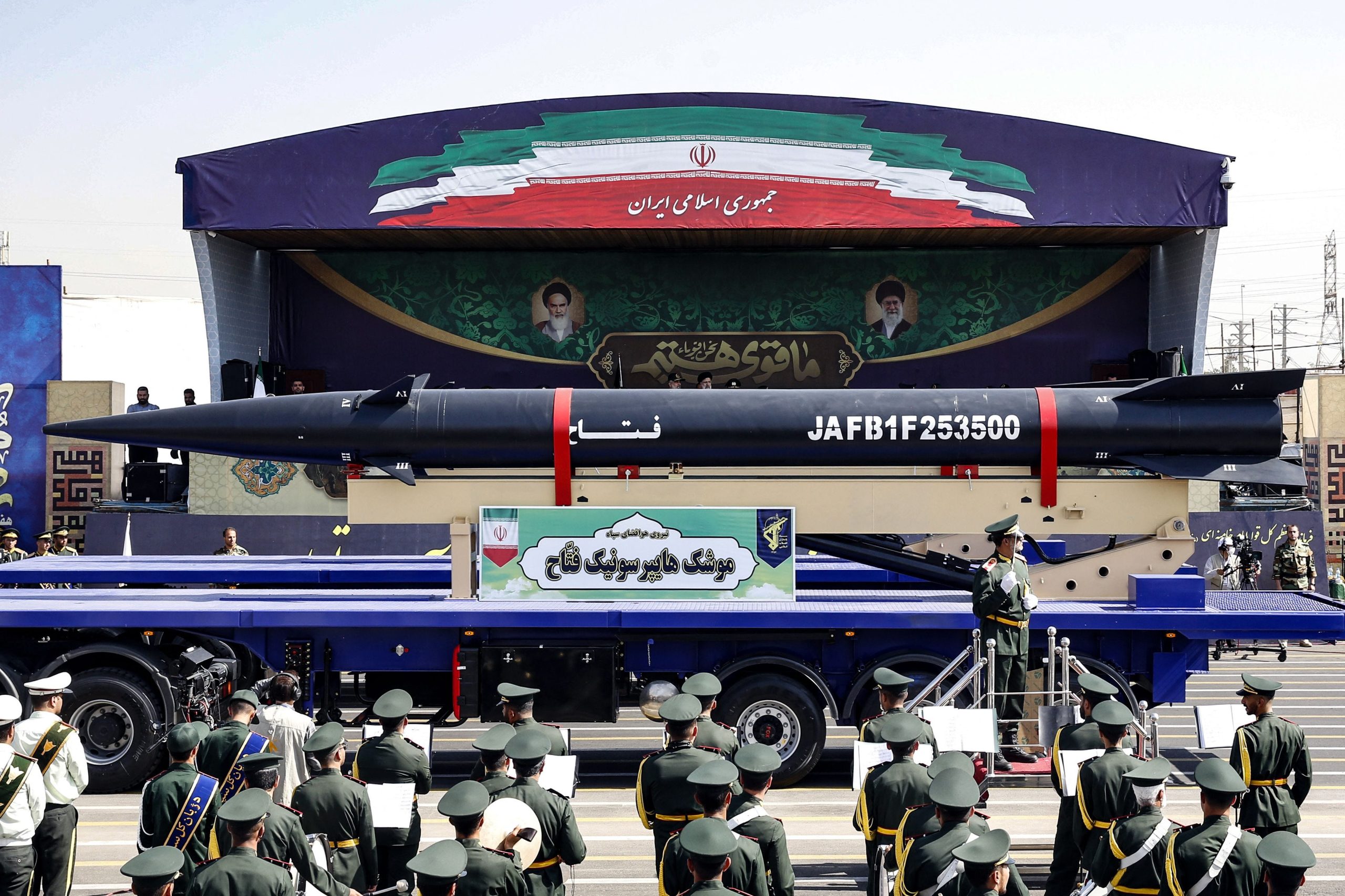Amazon is trying to defend its kingdom against cheap Chinese rivals, and it thinks it has a plan
June 27, 2024General Mills will push out ‘cheesier’ mac and cheese and ‘fudgier’ brownies to win back shoppers
June 27, 2024Yemeni Armed Forces (SPC)
- Houthi rebels say they've fired a locally made hypersonic missile as they target ships in the Red Sea.
- Dubbed the "Hatem-2," the Houthis said the missile is a solid-fuel warhead fired at a Liberian-flagged ship.
- The Houthis aren't known to have advanced arms manufacturing, and the missile resembles Iranian designs.
Yemen's Houthi rebel group said on Wednesday that it targeted a Liberian-flagged ship in the Arabian Sea with a "homemade hypersonic missile," saying it unveiled the weapon for the first time.
"It is a homemade hypersonic missile that possesses advanced technology, is accurate in hitting, and reaches long ranges," wrote Houthi military spokesperson Yahya Sare'e in a post on X.
Sare'e said the missile was launched at the MSC Sarah V, a Greek-managed civilian vessel that he alleged was linked to Israel. He did not say if the ship was hit.
Tracking data shows that the vessel was bound for Abu Dhabi and entered the Persian Gulf on Wednesday evening, indicating that it is still functional.
The United Kingdom Maritime Trade Operations, run by the British Royal Navy, reported that a ship was attacked on Monday but that its crew is safe after an explosion near its hull. A map showing the attack's location indicates it is one of the longest-range assaults launched by the Houthis so far.
Houthis posted footage of the missile
Houthi-linked channels posted footage of the purported launch, calling the missile the "Hatem-2" or "Hadim-2."
The video's text claims it is a solid-fuel missile with an intelligent control system and that multiple generations of the missile exist with various effective ranges.
Business Insider could not immediately verify the authenticity of the footage. In some of the clips, parts of the frame are blurred.
Sare'e said in a statement that the missile was developed by the Yemeni Military Industrialization Corporation.
The Houthis are not known to have the capability to manufacture advanced arms, bringing into question whether the "Hatem-2" was truly "homemade."
However, the group has been found to repeatedly be receiving weapons from Iran, a contravention of a United Nations arms embargo.
Indeed, the missile shown in the Houthis' Wednesday video appears to resemble Iranian-made munitions such as the Fattah-1, which Tehran says can travel at an effective speed of up to Mach 13, or 13 times the speed of sound.

AFP via Getty Images
Is the 'Hatem-2' really a homemade hypersonic missile?
Missiles that travel at Mach 5 or faster are generally considered hypersonic, and their speeds can make it difficult for defense systems to intercept. The term is sometimes used loosely to describe hypersonic glide vehicles and cruise missiles — warheads that can maneuver unpredictably in the sky at hypersonic speeds — that are at the forefront of military development for major powers like the US and China.
Given the footage published by the Houthis, it is unlikely that the "Hatem-2" possesses that kind of advanced capability.
The announcement by the Houthis comes just weeks after it said it launched another advanced missile, dubbed the "Palestine," on June 8. Like with the "Hatem-2," this missile was claimed by the rebels to be locally made but also resembled Iranian warhead designs.
X
These launches happened about three months after the Houthis were reported in March by Russian state media to have a hypersonic missile that could reach speeds of up to Mach 8.
The rebel group has been attacking dozens of ships, primarily in the Red Sea, which it says is a response to Israel's recent bombardment and occupation of Gaza. The Houthis claim to be attacking ships linked to Israel, but it is often unclear how the targeted vessels might be related to Tel Aviv.
Naval assets stationed in the region by the US and its allies have so far taken down almost all missiles and drones fired out of Yemen.
Notably, Yemen's latest launch occurred as the USS Dwight D. Eisenhower Carrier Strike Group left the region on Saturday after defending the area for about eight months. It is due to be replaced by the USS Theodore Roosevelt Carrier Strike Group.
With the Roosevelt strike group — the third group since October 2023 to be stationed in the Middle East — departing South Korea on Wednesday, the Red Sea region has been without a US aircraft carrier for at least several days.


